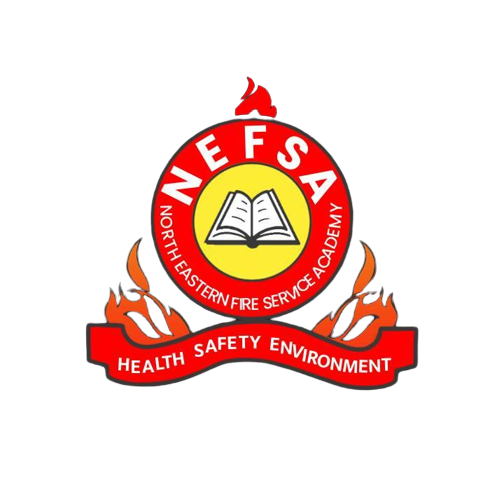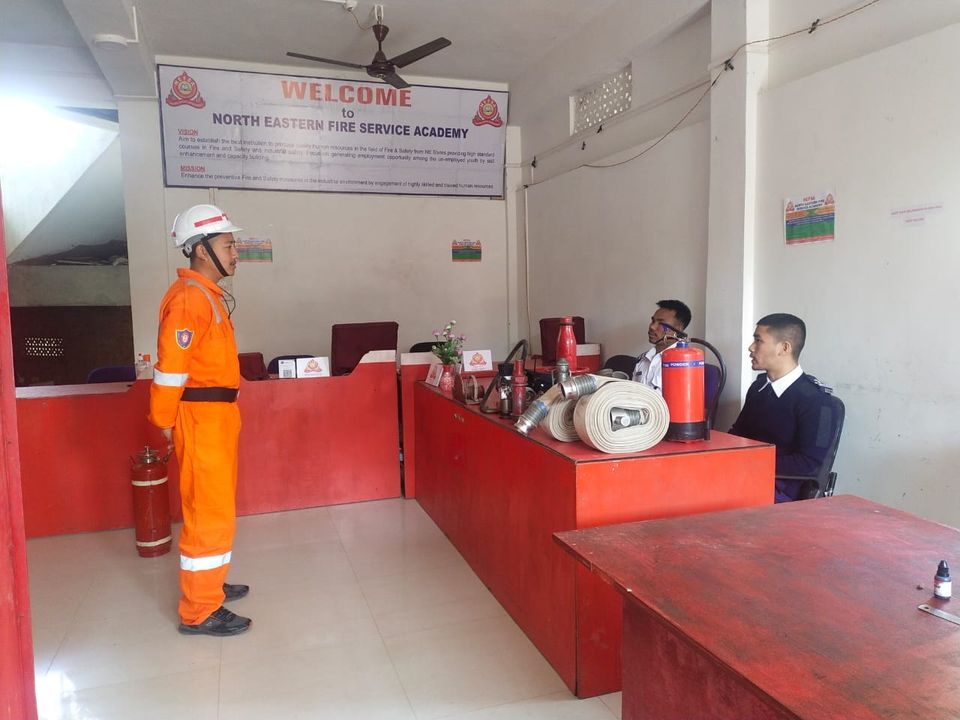Schools and colleges are high-occupancy, high-risk environments: children, faculty, staff, visitors and often boarding students use the premises every day. In a fire or emergency, rapid, calm, and organised evacuation saves lives. That’s where trained fire wardens — also called floor marshals or fire marshals — become indispensable. NEFSA’s experience working with educational institutions shows that designating, training, and empowering fire wardens drastically improves evacuation efficiency and reduces panic.
Legal & regulatory backbone (India) — what schools must know
In India, fire and life-safety guidance is primarily derived from the National Building Code (NBC) — Part 4: Fire & Life Safety, which explicitly calls for designation of fire wardens and deputy wardens for each floor or tenancy and sets expectations for evacuation organisation. Many state rules and municipal bylaws reference the NBC and may require periodic fire NOCs, audits, and compliance checks. Recent moves by municipal bodies to empanel third-party fire auditors and renewed scrutiny of institutional NOCs highlight the growing enforcement focus. Educational bodies should therefore treat fire warden programmes as both a safety and compliance priority.
Core responsibilities of a campus fire warden
Fire wardens have a practical, people-facing role that bridges policy and action. Key duties include:
-
Evacuation leadership: lead and supervise orderly evacuation of assigned zone or floor; check all rooms and vulnerable occupants.
-
Prevention & inspection: conduct regular checks of escape routes, emergency lights, fire doors, extinguishers and signage; report defects immediately.
-
Alarm & initial response: on discovering smoke/fire, raise alarm, try first-response measures only if safe (e.g., operate extinguisher), and coordinate with emergency services.
-
Roll-call & reconciliation: ensure students and staff are accounted for at assembly points and relay information to incident commanders.
-
Record keeping & drills: maintain basic logbooks (incidents, drills, inspections) and participate in post-drill reviews to fix gaps.
What makes an effective fire warden?
NEFSA recommends the following for schools and colleges when selecting and enabling wardens:
-
Right people, right numbers: assign at least one warden per floor/zone plus deputies proportionate to floor area and occupancy. NBC recommends deputy wardens where tenancy/floor area exceeds defined thresholds.
-
Formal training & refreshers: wardens must undergo certified fire warden/floor marshal training (basic modules: hazard ID, evacuation management, extinguisher use, assisting vulnerable persons) and refresher sessions at least annually. Practical drills should be run more frequently — termly or semi-annual depending on occupancy.
-
Empowerment & authority: fire wardens must have the authority to stop activities, clear routes, and enforce evacuation — backed by institutional policy.
-
Tools & visibility: provide high-visibility vests/IDs, torches, simple checklists, and a reliable communications plan (whistles, two-way radios or phone tree).
-
Vulnerable occupant plans: identify students/staff who need assistance (mobility issues, medical needs, infants) and establish buddy/assistance procedures.
Training, drills and documentation — how often and what to practice?
-
Initial certification: a 3–8 hour certified fire warden course covering theory, practical fire extinguisher use, evacuation leadership and case studies.
-
Annual refresher: reinforce procedures, update wardens on infrastructural or policy changes, and practise real-time scenarios.
-
Drills: conduct full evacuation drills at least twice a year (termly is ideal in academic settings). Include variations: night-time evacuation (for hostels), blocked exit scenarios, and medical emergencies during evacuation. Post-drill debriefs must document timings, bottlenecks and corrective actions.
Common gaps NEFSA sees — and how to fix them
-
Token designation without training: many institutions name wardens but don’t train them. Fix: tie designation to certification and regular drills.
-
Poor route maintenance: blocked corridors, locked emergency exits, or non-functional emergency lights. Fix: monthly route inspections and maintenance logs.
-
Lack of coordination with local fire services: some campuses don’t share plans with local fire departments. Fix: invite fire services for joint drills and NOC inspections.
Case for third-party audits & municipal engagement
Municipal efforts to empanel certified third-party auditors and stricter enforcement (seen in recent city initiatives) make independent audits a valuable investment for educational institutes — not only to secure or renew NOCs but to identify hazards before they turn into tragedies. NEFSA recommends annual third-party audits where budgets allow, or at minimum, biennial audits plus in-house monthly inspections.
NEFSA’s quick action plan for schools & colleges (30-day start)
-
Week 1: Appoint wardens and deputies; publish a simple evacuation map for every floor.
-
Week 2: Enrol wardens in a certified fire warden course; perform basic equipment checks.
-
Week 3: Run a tabletop evacuation exercise with department heads and local fire service (invite them).
-
Week 4: Conduct a full evacuation drill, time it, document gaps, assign corrective owners and schedule refresher training.
Conclusion
Fire wardens are not a compliance checkbox — they are the boots-on-the-ground leaders who turn plans into action when seconds count. NEFSA’s field experience shows that schools and colleges that invest in trained wardens, frequent drills, clear documentation and municipal coordination drastically reduce risk and improve outcomes. Make fire warden training, empowerment and audits a non-negotiable part of your institutional safety roadmap
Sources & further reading
-
National Building Code of India — Part 4: Fire & Life Safety (NBC 2016). Shubh Fire and Safety Equipments+1
-
NDMA / School Fire Safety report — findings on preparedness and training gaps. National Disaster Management Authority
-
NFPA standards and guidance on fire marshal/warden roles. NFPA
-
Fire warden / floor marshal training course outlines (examples from certified providers). ABC Safety Solutions+1
-
Recent municipal initiatives on third-party fire audits and institutional compliance. The Times of India+1
Contact us today to know more about admissions, batch schedules, and course details.
Visit: www.nefsaindia.com
Location: Dibrugarh, Assam
For More Blogs:- Click here







